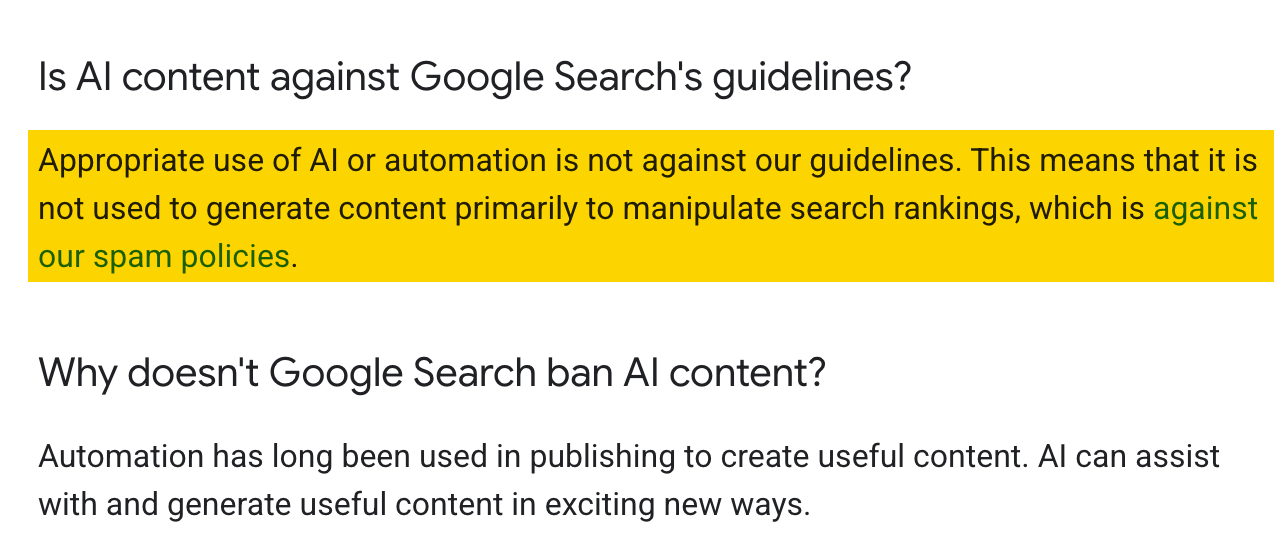
If you think about it, there is no clearer signal than the fact that Google has rapidly rolled out AI Overviews (and now AI mode), both of which are basically AI-generated content.
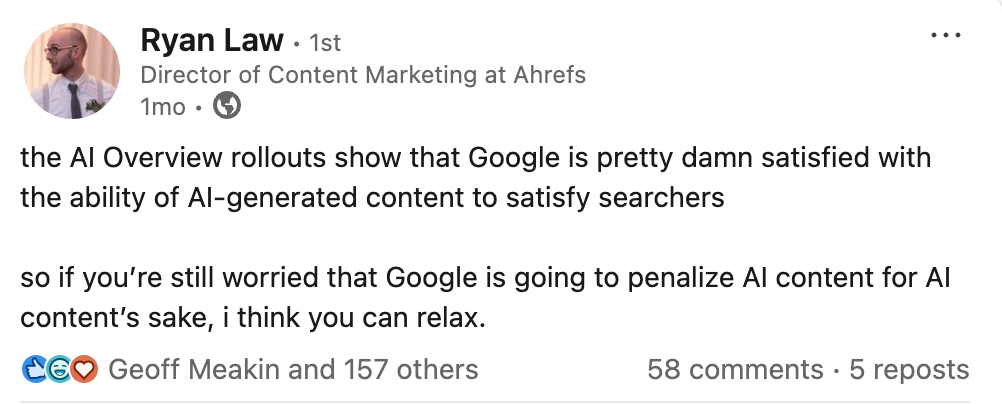
Yet there are still many SEOs and digital marketers who think that Google seeks to actively punish AI content.
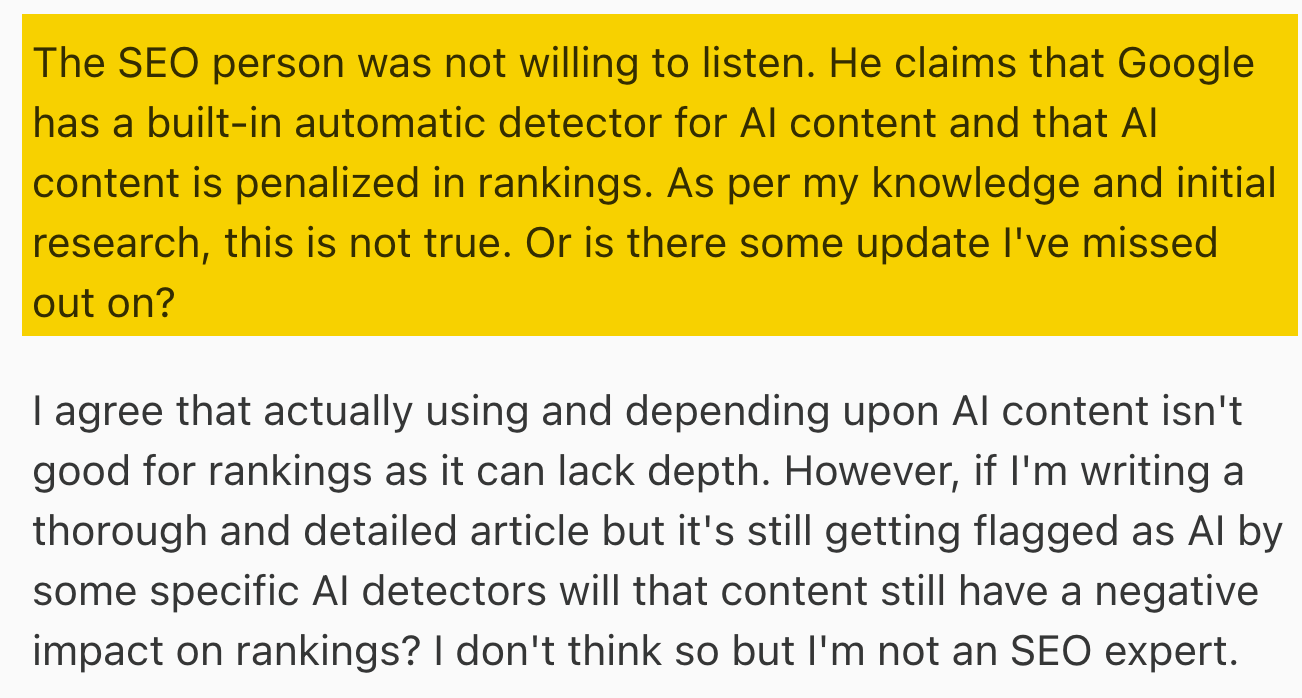
Post on Reddit
We decided to find out the real answer by looking at 600,000 webpages to understand if Google punishes, rewards, or is simply indifferent to AI content.
Here’s what we found:
We ran each article through our own AI content detector, which is part of Page Inspect in Site Explorer.
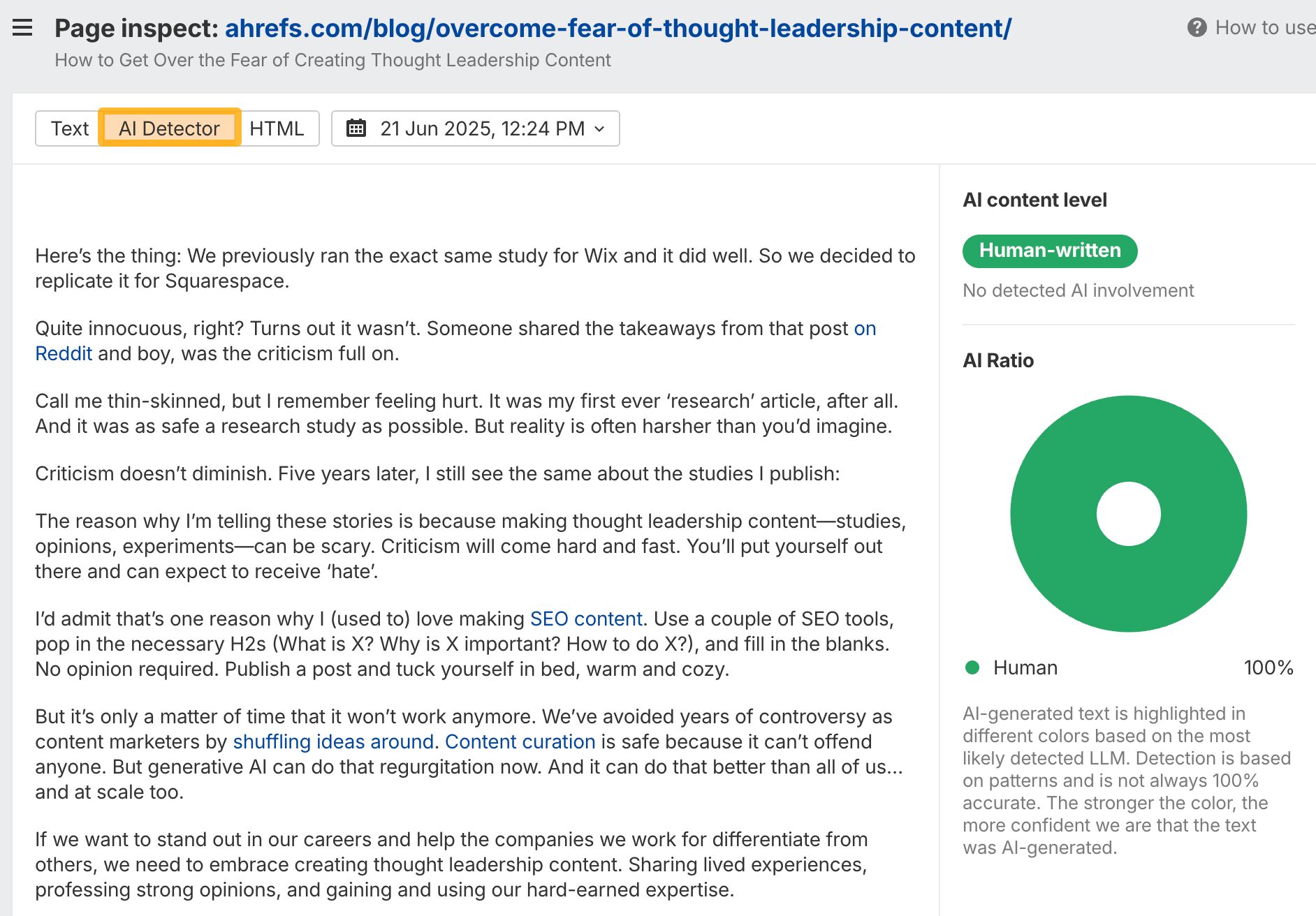
Here’s what our AI content detector found:
- 4.6% of pages were categorized as “pure AI.”
- 13.5% were categorized as “pure human.”
- 81.9% were categorized as a mix of two.
Of the ones that were a mix of both human and AI:
- 13.8% showed minimal AI use (1-10% of the page content was categorized as AI)
- 40% showed moderate AI use (11-40%)
- 20.3% showed substantial AI use (41%-70%)
- 7.8% showed dominant AI use (71%-99%)
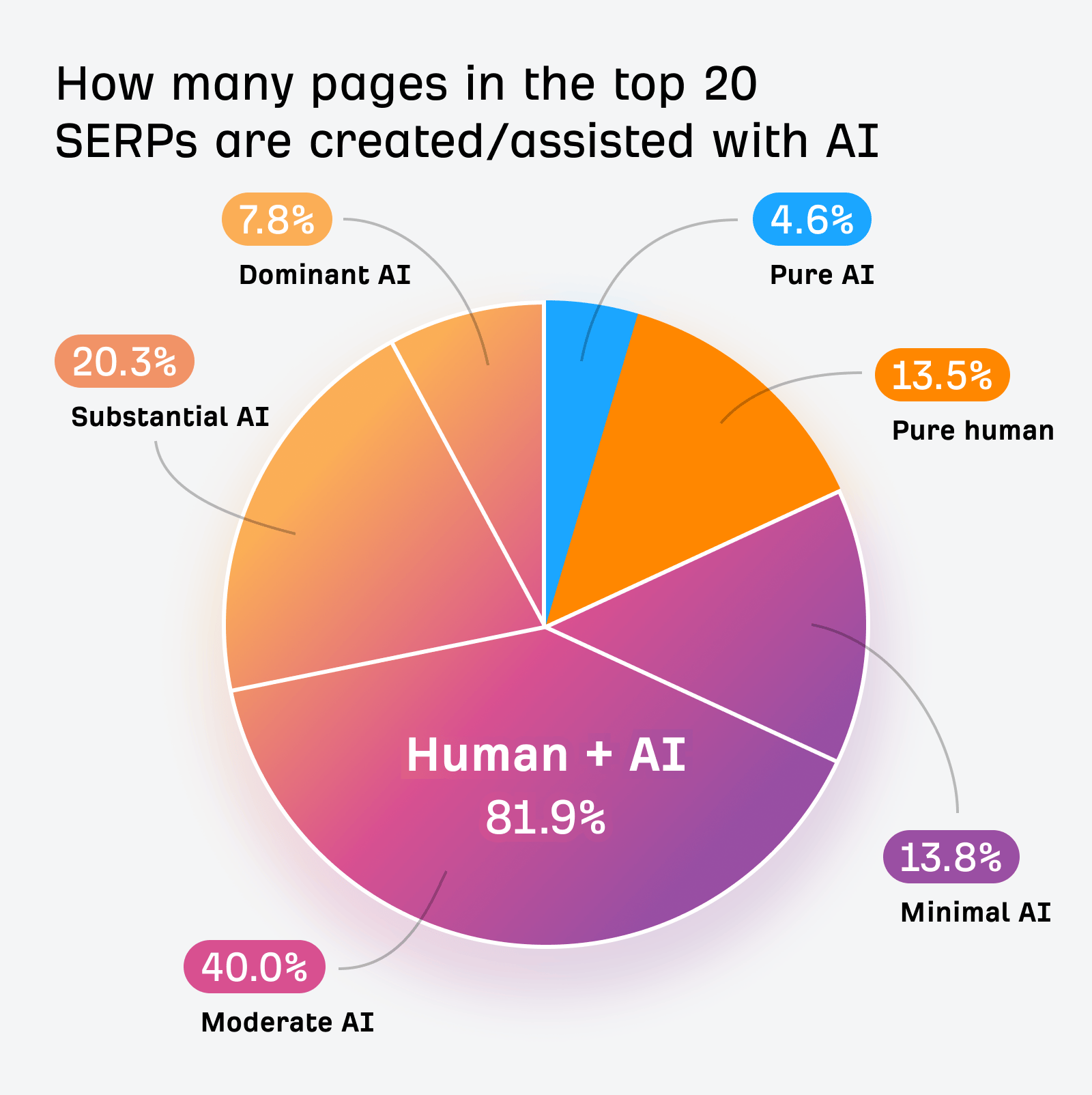
Sidenote.
No AI content detector is perfect. Like LLMs, AI detectors are statistical models. They deal in probabilities, not certainty. They can be incredibly accurate, but they always carry the risk of false positives.
You can learn more about how AI detectors work, and why they’re useful, in these articles:
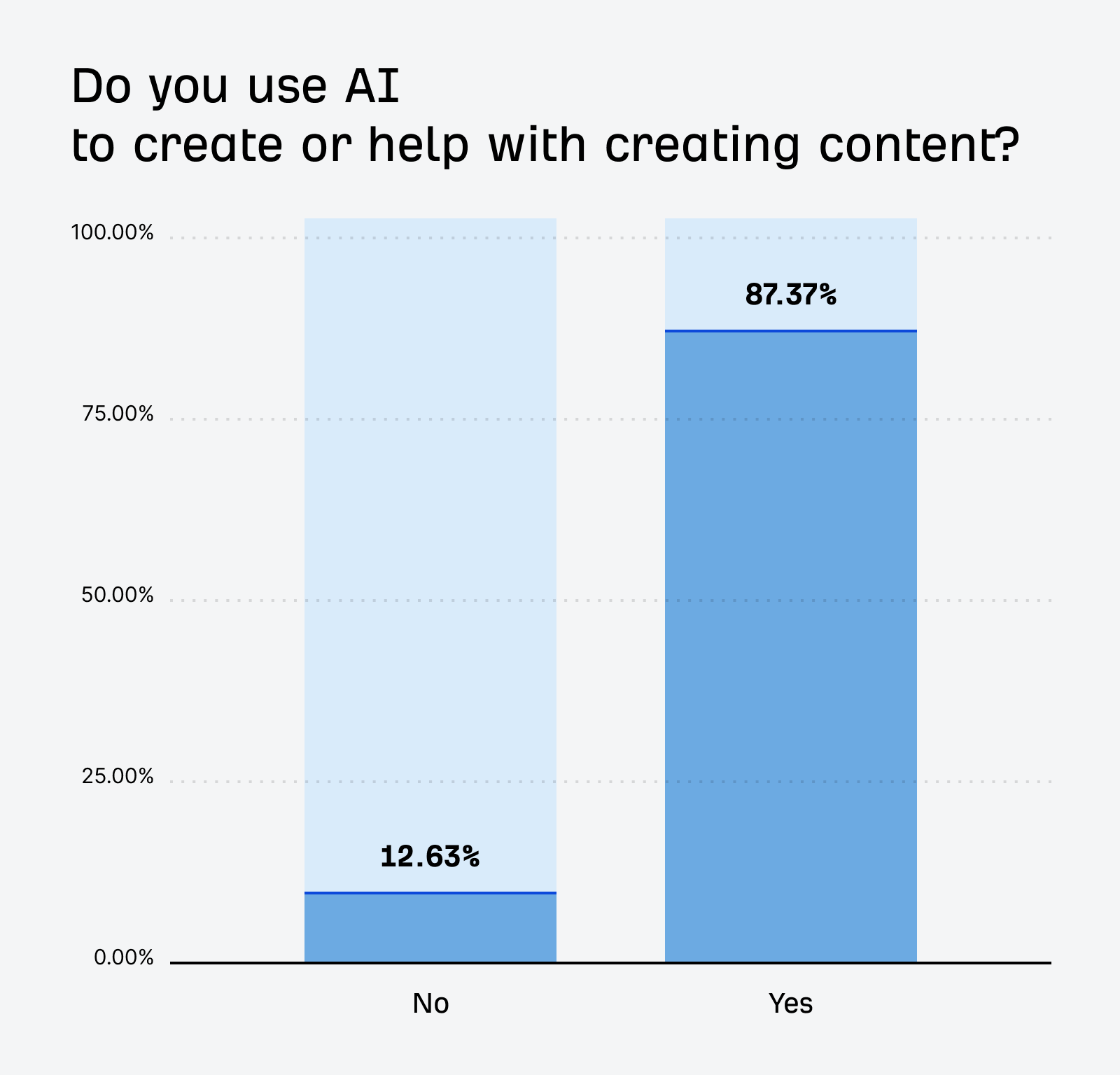
Just as there’s no longer any manufactured steel untouched by nuclear fallout, soon there won’t be any piece of content that isn’t ‘tainted’, or assisted, by AI.
We calculated the correlation between AI content percentage and search ranking position across our entire dataset. The correlation was 0.011, effectively zero.
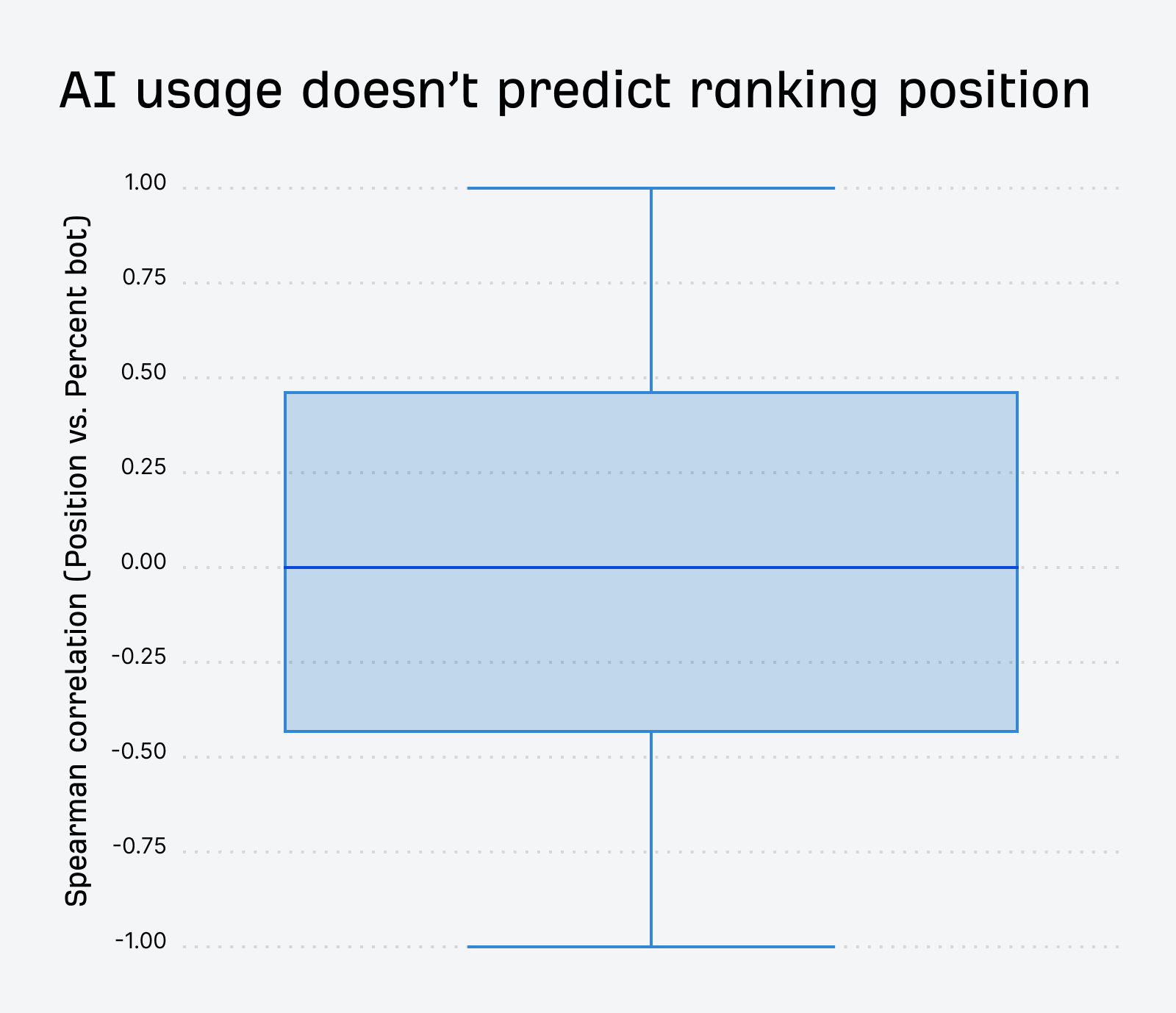
In case this is your first time seeing a box plot, here’s how you should read them:
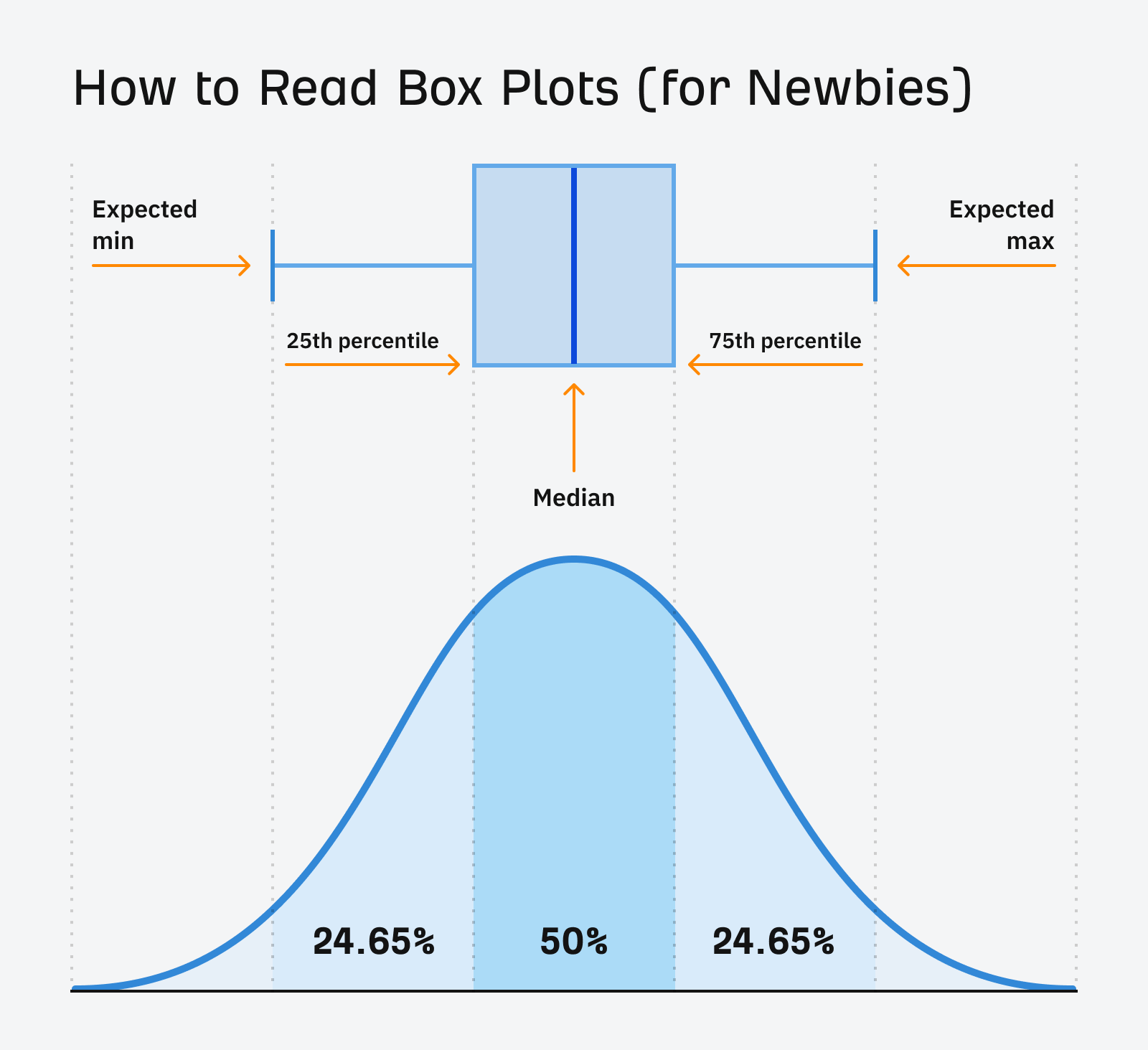
There is no clear relationship between how much AI-generated content a page has and how highly it ranks on Google. This suggests that Google neither significantly rewards nor penalizes pages just because they use AI.
If you’re looking for a silver lining somewhere, you’d be happy to know that the very highest-ranking pages, i.e. #1, tend to have slightly less AI-generated content.
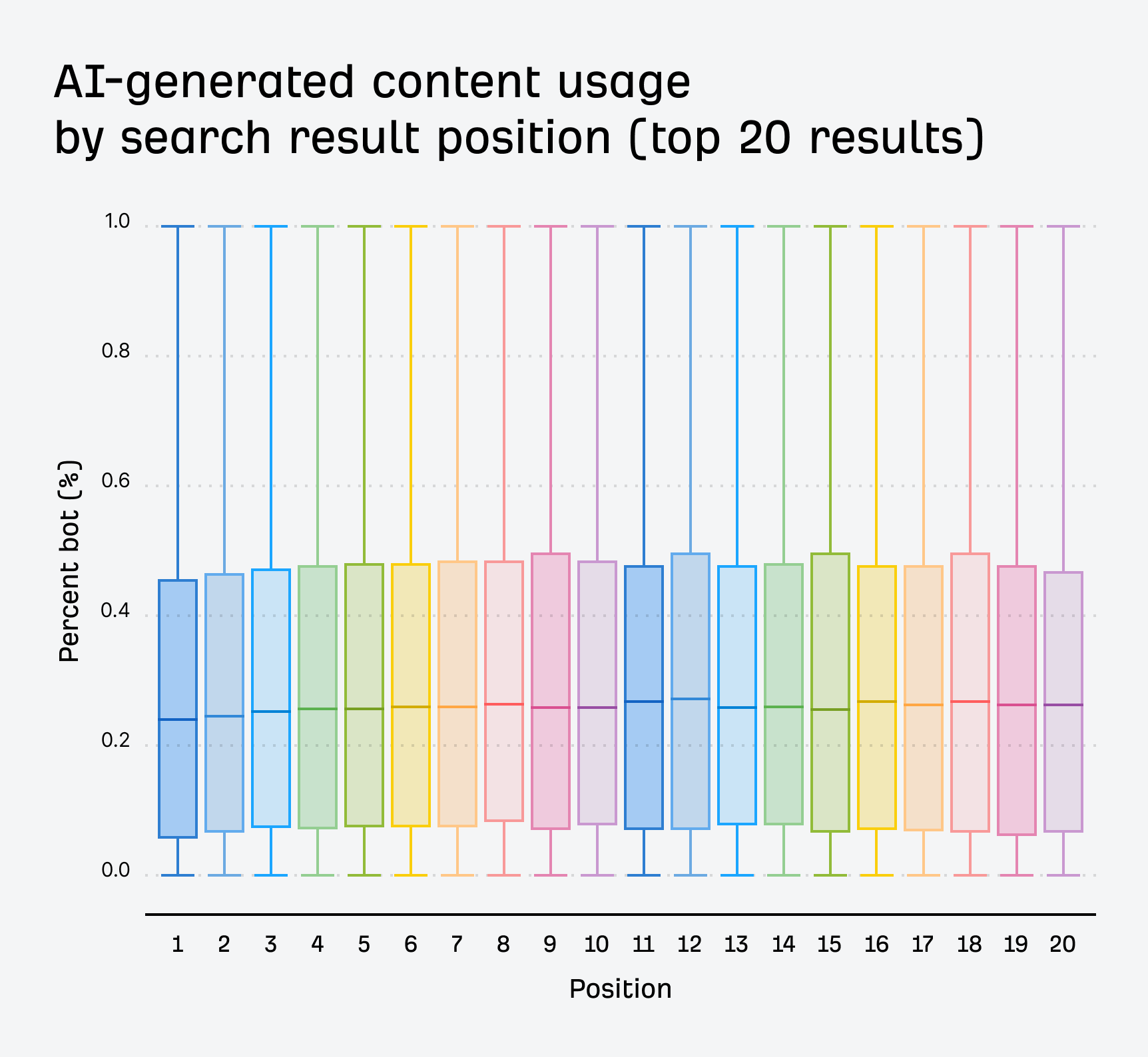
In fact, if we group them into three groups of minimal AI use (0-30%), some AI use (30-70%), and substantial AI use (70-100%), you’d also be happy to know that the group with minimal AI use correlates very slightly with higher rankings.
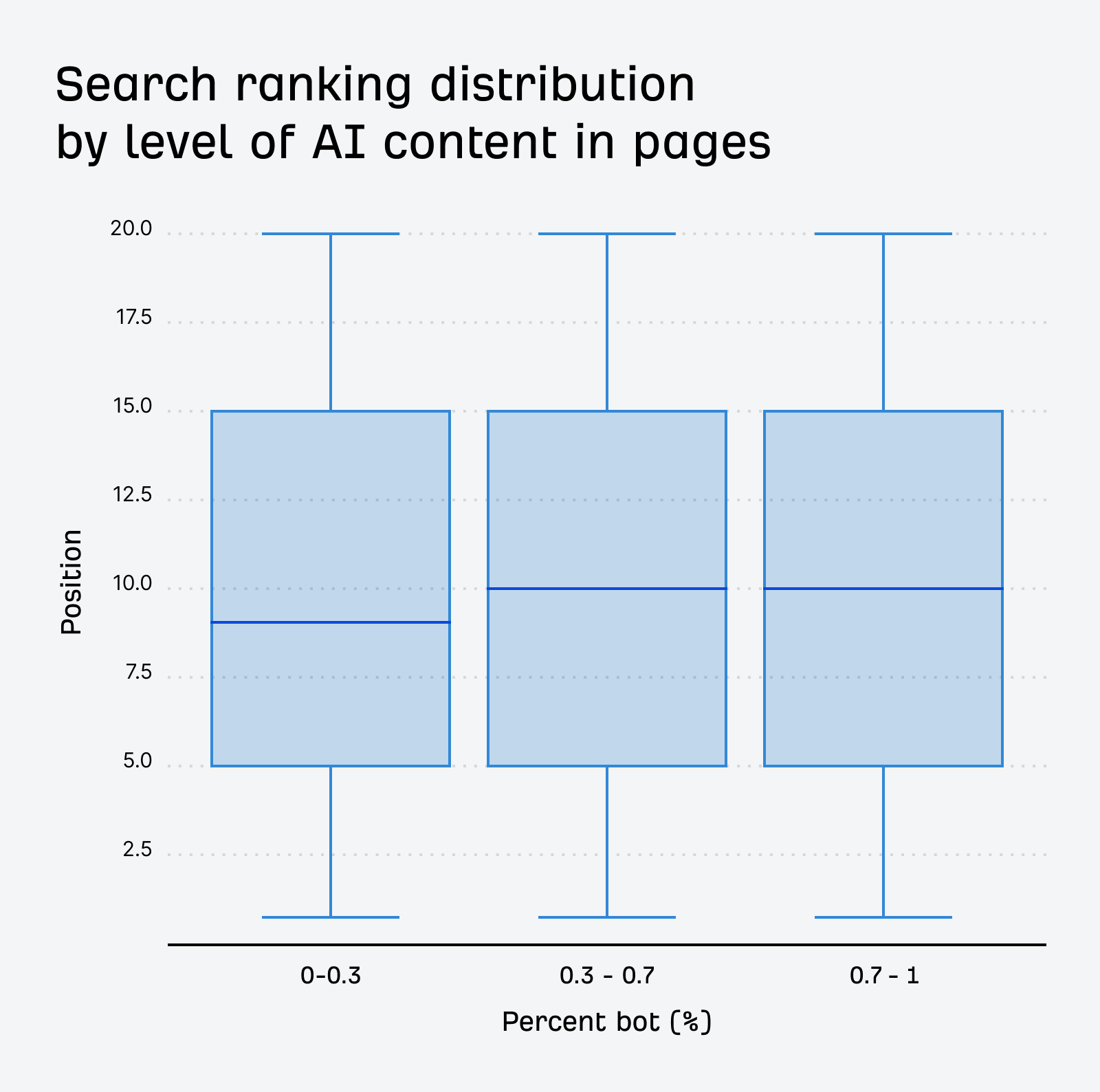
This suggests a minor preference for more human-created or lightly AI-assisted content at the very top of the SERPs. But bear in mind that the correlation is very weak.
Wrapping up
From our research, it seems that Google neither actively punishes nor rewards AI content. So, you don’t have to be afraid and avoid AI content at all costs.
Ultimately, Google probably doesn’t care how you made the content. It simply cares whether searchers find it helpful.
If you can make pure AI content that’s unique, helpful, and searchers will want to consume, then I don’t see why not.
But from my experience, and from the data, we can see that it’s difficult to make truly high-quality content from AI alone.
That’s likely why most content creators are leveraging AI as a tool to assist in making content, rather than simply generating them.
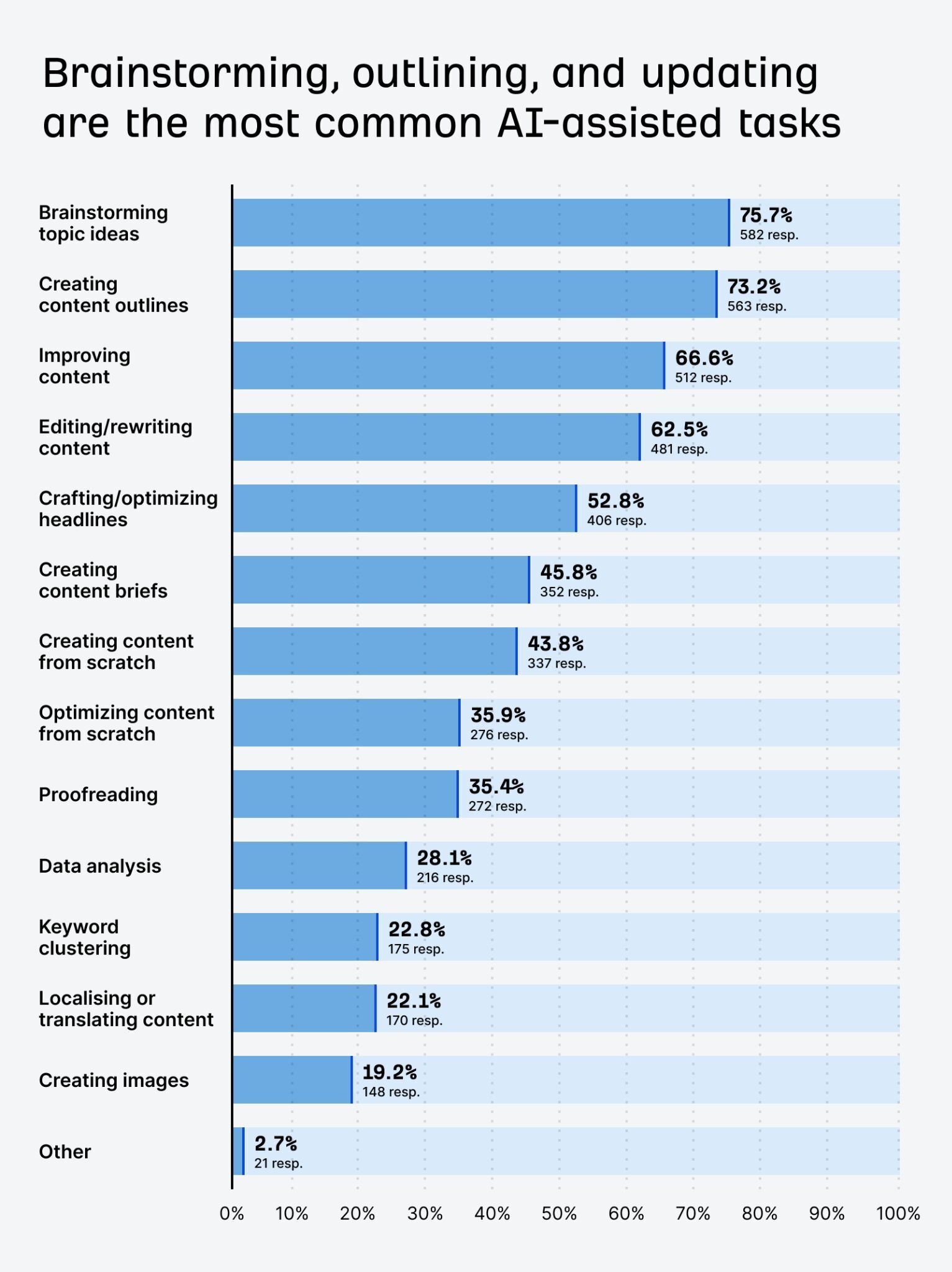
Similar Posts
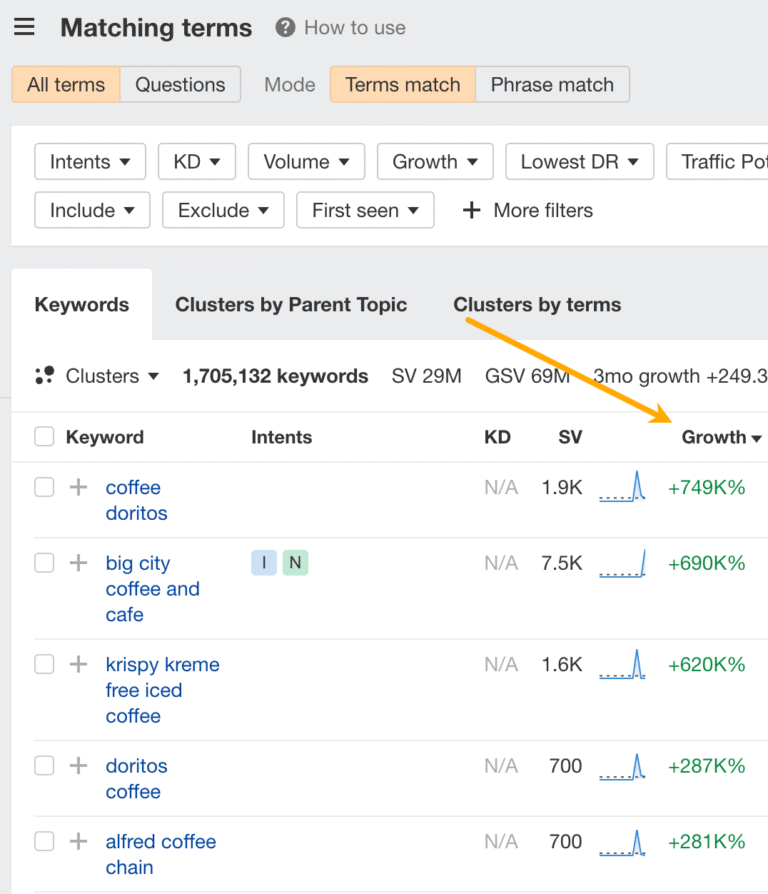
Top Trending Topics (January 2026)
1 cast of a very jonas christmas movie 11000 >999% 2 ₹99/- deals on flipkart 450 >999% 3 how to declutter digital files 1000 >999% 4 best noise meter apps 1400 >999% 5 what is an ssl certificate chain 900 >999% 6 how to dose fertilizer for plants 700 >999% 7 what is a reusable straw…
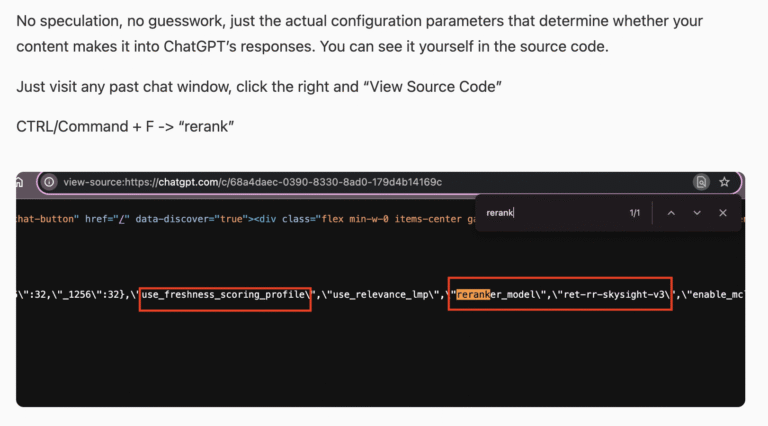
13 of the Best SEO Blogs (Beyond the Usual Suspects)
AI may be killing search clicks, but we’re still reading content—especially the good stuff. At Ahrefs, we read and share articles all the time for marketing and SEO inspiration. In fact, SQ puts a call-out for the best SEO blogs every week, to curate the Ahrefs’ Digest. Below you’ll find our favorites–the blogs that have made…
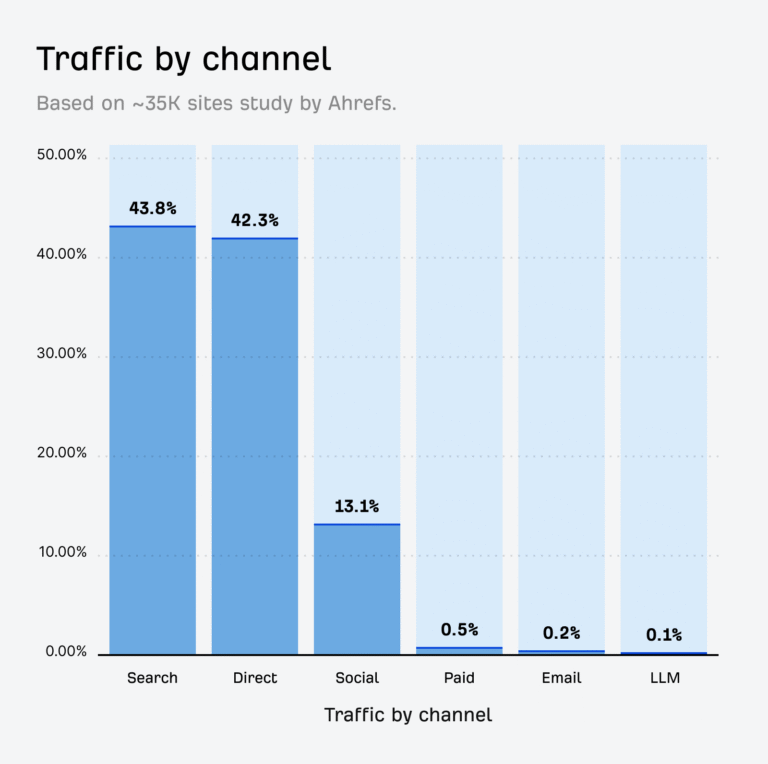
The AI Bots That ~140 Million Websites Block the Most
AI bots power some of the most advanced technologies we use today, from search engines to AI assistants. However, their increasing presence has led to a growing number of websites blocking them. There’s a cost to bots crawling your websites and there’s a social contract between search engines and website owners, where search engines add…
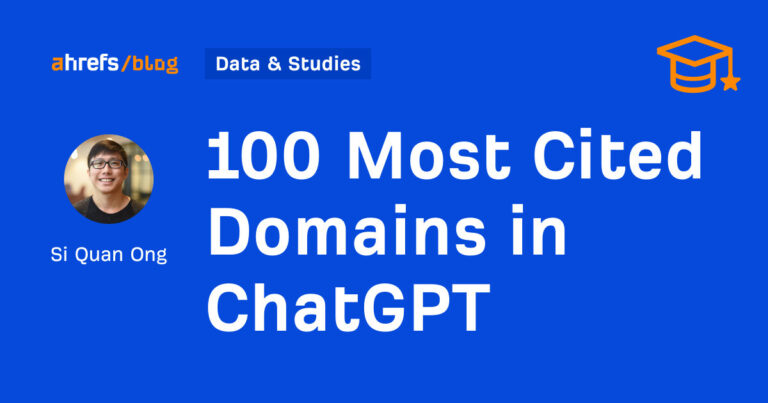
100 Most Cited Domains in ChatGPT
100 most cited domains in ChatGPT globally The top most cited domains in ChatGPT globally are Reddit, Wikipedia (English, Spanish, and German versions), Amazon, and TechRadar. Globally, ChatGPT seems to prefer authoritative and well-known publications, with sites like TechRadar, The Sun, Times of India, Forbes, Wired, and more high on the list. # Domain Mentions 1…

What Effect Will AI Have on Constructing an Outstanding Website?
The Impact of AI on Constructing an Outstanding Website Artificial Intelligence (AI) is transforming the way websites are designed, developed, and maintained. It enhances efficiency, personalisation, and functionality, making it easier than ever to create outstanding websites that deliver exceptional user experiences. Here’s a deep dive into the ways AI impacts website construction: 1. Streamlining…
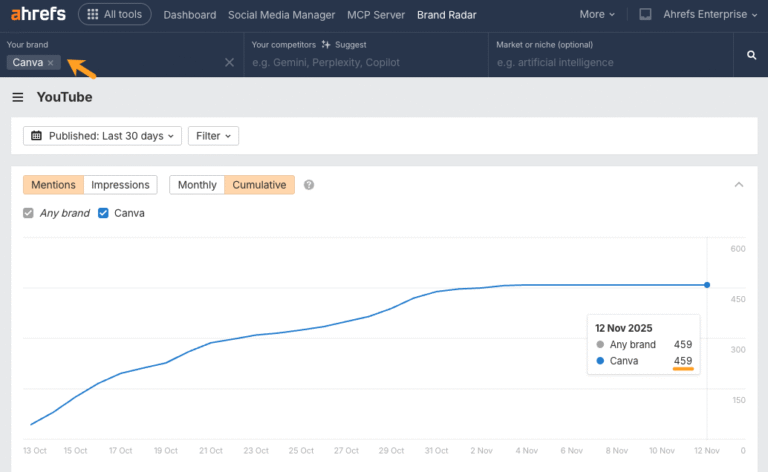
How to Monitor Your YouTube Video Mentions
Your brand is being talked about on YouTube right now—and you probably have no idea what’s being said. YouTube is the second-largest search engine, where users spend roughly 50 minutes daily (and growing). It’s also the 2nd most cited source by LLMs, meaning video mentions don’t just reach human audiences—they teach AI how to recommend your brand….
